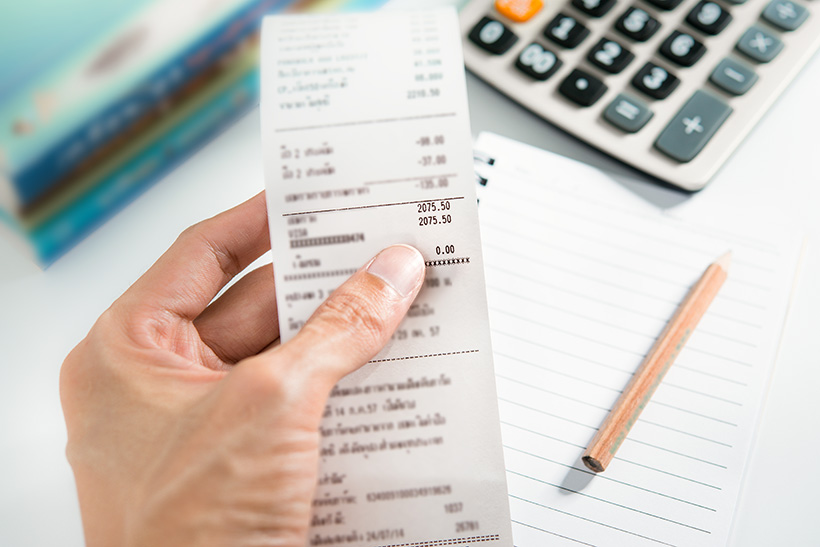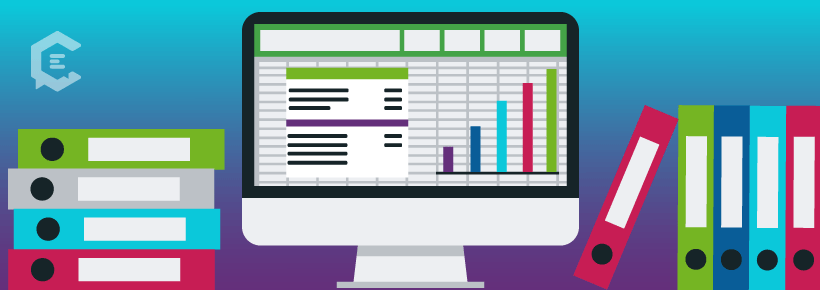Accounting and record keeping for freelance writers requires individuals to think beyond their passion — writing — and think like small business owners. Record-keeping and accounting require systems that help you stay organized, record and track financial data, and analyze data for informed business decisions.
Freelance writers write for many reasons, many of them have to do with their love of writing and their respect for the power of the written word. Many focus on a niche in which they have expertise and may write full-time or as a sideline.
Regardless of the reasons you are a freelance writer, this is a business and you are a business owner. Owning a small business comes with the burden of accounting for your revenue and expenses and filing taxes. Keeping good accounting records can help you manage your business and comes in very handy at tax time. Here are some accounting and record keeping issues for freelance writers.
What information do I need to keep?
Put simply, you need to keep records of all money you receive as payment for your writing and related services (editing, copywriting, etc.). Basically, you need to have a record of every payment you receive for business services you provide.
If your client is a business entity, they will likely provide a 1099 form to you after the end of the year. But not all clients will. For example, there is at least one major content marketing company that process payments to writers via PayPal and doesn’t provide a 1099. Neither does the ultimate client that you are writing for. In this case, the only way that you would receive a 1099 is if you exceed PayPal’s minimums of earning more than $20,000 per year and receiving 200 or more payments.
You can’t just count on reporting from your clients. You need to track all revenues earned during the course of the year, no matter how much you charge for freelance projects. Under-reporting your income to the IRS is a serious issue and could lead to penalties and even criminal prosecution.
You also need to track your business-related expenses to ensure that you have an accurate picture of your business’s profit and loss. More importantly, keeping good records here can save you big-time come tax time. Poor record-keeping can cause you to miss some value deductions and result in a higher tax bill than needed. You will want to keep copies of receipts and other records documenting business expenses and your payment for those expenses.
The IRS defines business expenses that may be deductible as being “ordinary and necessary” business expenses. Some typical business expenses that you might incur during the year include:
- Business software
- Internet access
- The cost of your business computer(s) and other devices
- Business mileage
- Depreciation of applicable equipment
- Costs related to the expense of an office or a home office
- Business equipment, such as a printer or fax machine
- Continuing education classes related to your business or profession
- Costs of attending a business conference
- Memberships in business-related groups or organizations
- Cost of health insurance for the self-employed
- Business legal fees
- Cost of business tax preparation
- Cost of business health insurance
- Retirement plan contributions
Depending upon your situation, you may not incur each of these types of business expenses and/or you might incur other expenses not listed here.
Also note, the new tax laws (passed at the end of 2017) may limit or eliminate some expenses that you could previously deduct. One example is business entertainment. It would be wise to ask your tax professional if and how any changes via the new rules impact your business.
Use separate business accounts
Even if you are just starting out, you should get in the habit of keeping your business transactions separate from your personal transactions.
This will help you in terms of your accounting and record keeping efforts for your business. Commingling your personal activities with your business activities makes it easy to miss something at tax time, and muddies the waters as you seek to understand how your business is doing.
For those who use a separate business entity such as an LLC or an S-Corp, it is important to keep your business and personal expenses separate in order to maintain any protections from personal liability afforded by these and other corporate entities. Failure to do this has been cited as a means that this protection can be rendered invalid or “pierced.”
If possible, try to use a separate checking account and credit card for your business transactions.
Have a system… and use it
Whether you use a spreadsheet or an accounting program like QuickBooks, you need a means to keep track of all revenues and expenses. Not only will this make things easier at tax time, but you will also have easy access to your businesses financial information during the year to track how you are doing and to help in making business decisions.
One of the nice things about using a program like Quick Books is the ability to integrate the various aspects of your business into one central place.
You can write checks using Quick Books. You can link bank account and a credit card. In other words, you can use the program to capture all of your business transactions.
We are certainly not trying to push you towards using Quick Books, or even endorse it. Rather, we cite it as an example of a long-established small business accounting program that has many loyal users, both individual small business owners and accounting professionals.
Another program to consider is FreshBooks, an online invoicing an expense-tracking program. Additionally, using a service like PayPal to receive payments from clients and to issue payments can provide a good paper trail to help track income and expenses. There are many, many others to choose from as well. What’s important is that you choose the tools that are right for you and your business.
Having a system to record and track all revenues and expenses associated with your business activities makes your life easier at tax time. It can also help you analyze and plan your business.
Using information to make business decisions
We are not trying to make financial analysts out of you, but having good, accessible business information can help you manage your business in a number of ways. A few examples:
- Where are you spending your money? What are your biggest business expenses? Are there ways to reduce these costs perhaps via automation or looking at another vendor?
- Who are your largest and most profitable clients? Are there writing clients from whom you don’t earn much, but who make excessive demands? Maybe it is time to move on from some of these clients and find new clients who are more profitable and easier to work with.
- Where are you looking to take your freelance writing business? Having good financial information is a key element in any type of business planning that you might do.
Summary
The minute you decided to become a freelance writer you also became a small business owner. As a business owner, you need to track all business revenues and expenses. Staying organized and having a system in place will make this task easier, and will come in handy not only at tax time but throughout the year in using your financial information as a tool to expand and grow your business.
As your business grows, you might consider engaging a bookkeeper or an accountant to help with these chores.
Disclaimer: This article is meant as a guide for informational purposes only. It does not constitute a solicitation or provision of legal or financial advice, nor does it establish a client-attorney relationship. Please consult a professional in making any decisions for your business.






